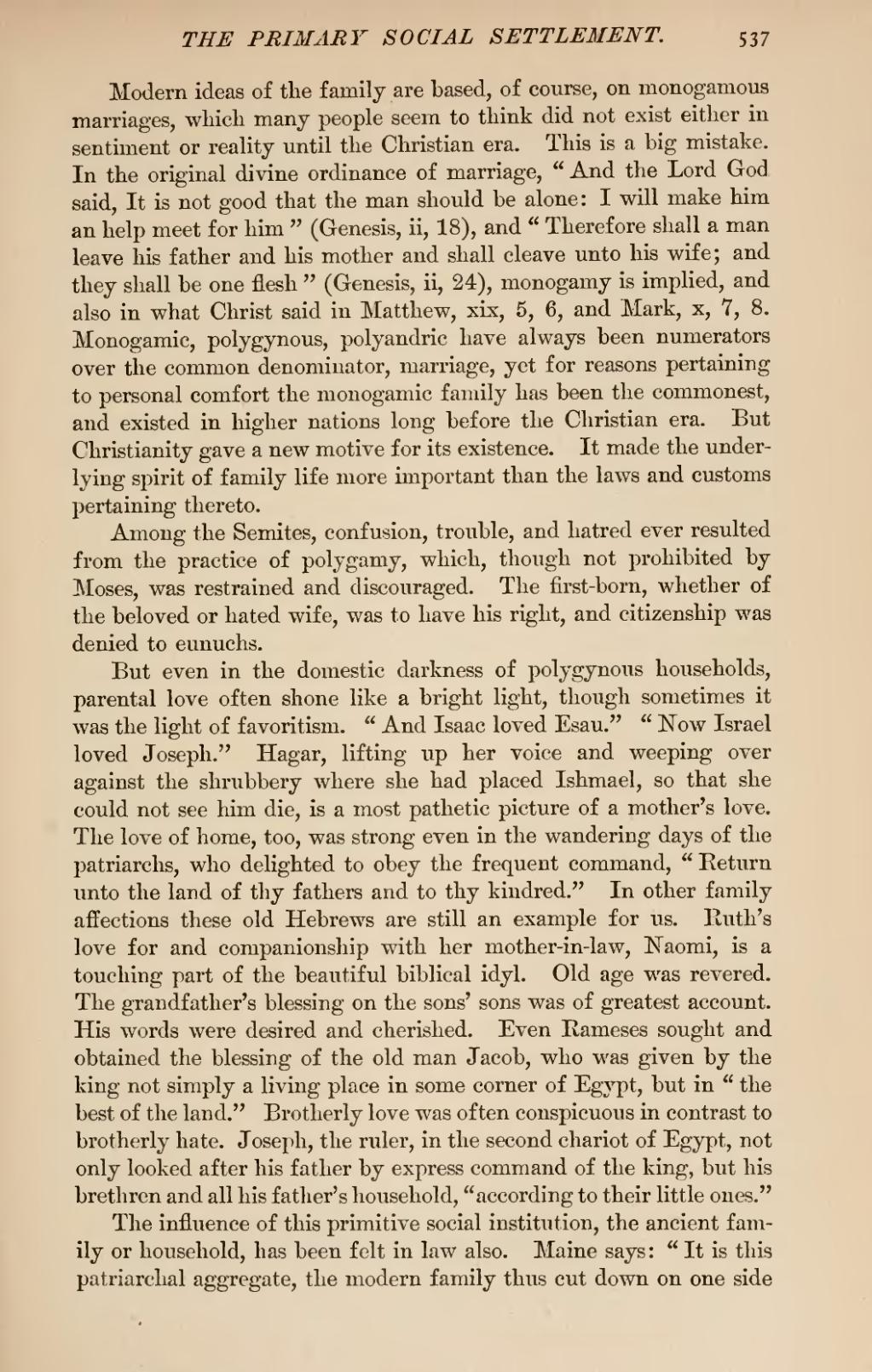Modern ideas of the family are based, of course, on monogamous marriages, which many people seem to think did not exist either in sentiment or reality until the Christian era. This is a big mistake. In the original divine ordinance of marriage, "And the Lord God said, It is not good that the man should be alone: I will make him an help meet for him" (Genesis, ii, 18), and "Therefore shall a man leave his father and his mother and shall cleave unto his wife; and they shall be one flesh" (Genesis, ii, 24), monogamy is implied, and also in what Christ said in Matthew, xix, 5, 6, and Mark, x, 7, 8. Monogamic, polygynous, polyandric have always been numerators over the common denominator, marriage, yet for reasons pertaining to personal comfort the monogamic family has been the commonest, and existed in higher nations long before the Christian era. But Christianity gave a new motive for its existence. It made the underlying spirit of family life more important than the laws and customs pertaining thereto.
Among the Semites, confusion, trouble, and hatred ever resulted from the practice of polygamy, which, though not prohibited by Moses, was restrained and discouraged. The first-born, whether of the beloved or hated wife, was to have his right, and citizenship was denied to eunuchs.
But even in the domestic darkness of polygynous households, parental love often shone like a bright light, though sometimes it was the light of favoritism. "And Isaac loved Esau." "Now Israel loved Joseph." Hagar, lifting up her voice and weeping over against the shrubbery where she had placed Ishmael, so that she could not see him die, is a most pathetic picture of a mother's love. The love of home, too, was strong even in the wandering days of the patriarchs, who delighted to obey the frequent command, "Return unto the land of thy fathers and to thy kindred." In other family affections these old Hebrews are still an example for us. Ruth's love for and companionship with her mother-in-law, Naomi, is a touching part of the beautiful biblical idyl. Old age was revered. The grandfather's blessing on the sons' sons was of greatest account. His words were desired and cherished. Even Rameses sought and obtained the blessing of the old man Jacob, who was given by the king not simply a living place in some corner of Egypt, but in "the best of the land." Brotherly love was often conspicuous in contrast to brotherly hate. Joseph, the ruler, in the second chariot of Egypt, not only looked after his father by express command of the king, but his brethren and all his father's household, "according to their little ones."
The influence of this primitive social institution, the ancient family or household, has been felt in law also. Maine says: "It is this patriarchal aggregate, the modern family thus cut down on one side
